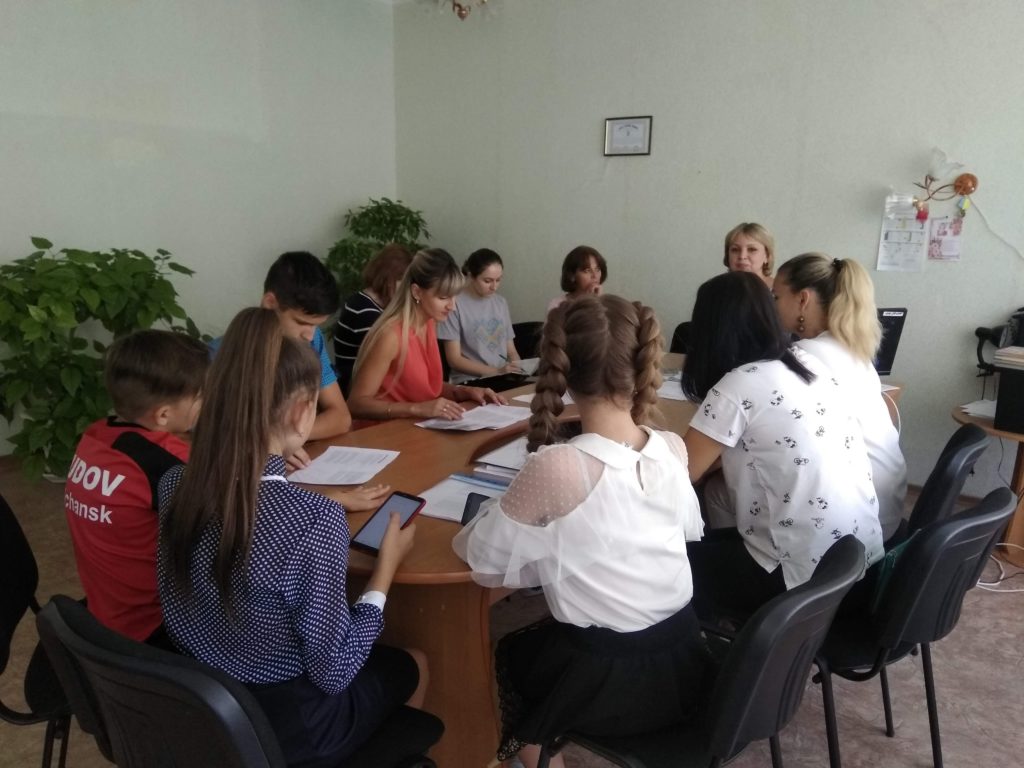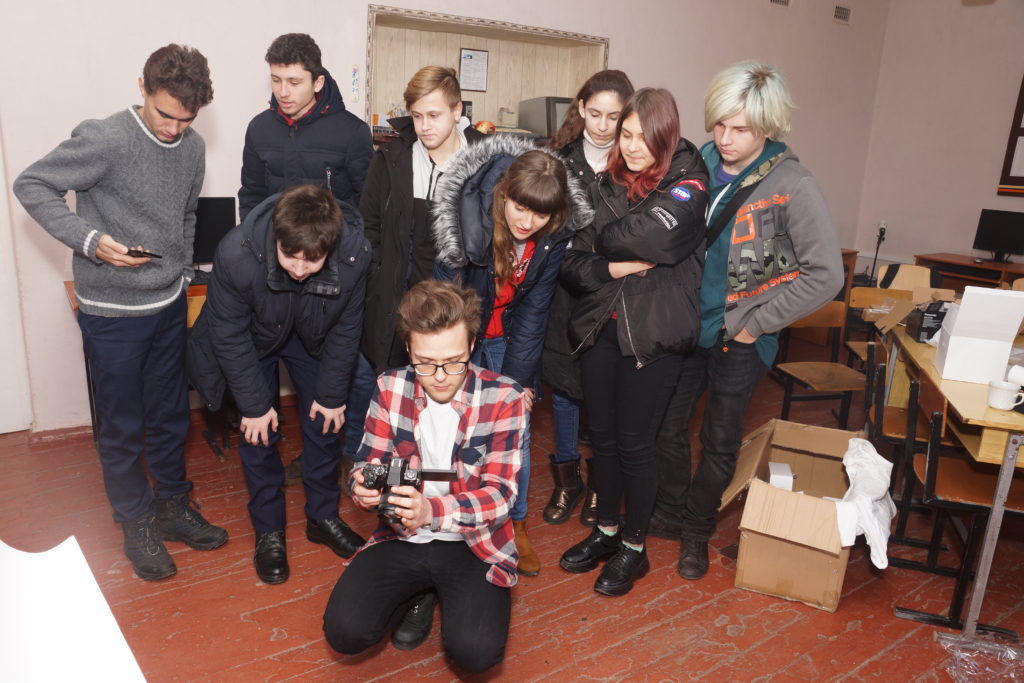Participating in finding solutions for the challenges of local community development can be the core driver of democratic changes at schools.

Many schools in Ukraine see cooperation with parents as problematic. Teachers and school administration often have a feeling that parents only have demands and offer no help.
Parents believe that school does not hear them. Lysychansk school №13 (Luhansk region) wanted to improve their cooperation with parents and build communication based on mutual trust and having in mind the best interest of students.
A Viber chat for the whole school appeared. The school survey for teachers, students and parents indicated some issues that the school could solve together. Some problems and possible decisions were discussed at the first “whole-school conference”. New student governance regulations were introduced, and the format of parents’ meetings was changed, giving more space for initiative and decisions to parents and students.
The teachers’ council launched an anti-bullying project aimed at the development of mediation skills and civic competences of all school stakeholders. To reach all their goals, the school found new community partners – the local library, a teacher college, a regional children’s hospital and supermarkets.
To make sure that students have a comfortable space for discussions, students, parents, teachers and school administration created a „Youth hub” at school – a comfortable meeting spot for students inside the school.
Summing up their work, the school director, Marina Milishkevic, said “Parents, students and teachers do not demand, they propose! We are as open to each other as possible. Partnership pedagogy helps us to solve difficult situations”.

Often, to strengthen cooperation with the community and make the school more open, first of all, new communication methods and platforms are needed.
Neskuchnensk school (Donetsk region) had a long history of different media clubs, many school alumni became journalists or were involved in media activities. School students got inspired by the idea of a democratic school and gave this tradition a new impetus by creating a school Media Centre.
Together with teachers, school administration and parents they were looking for new inspiration, projects and funding for their new ideas. Through this cooperation the school won the Youth MediaLab grant aimed at supporting the development of communication and digital skills of young people.
With the grant students could buy and learn to work with the equipment. They chose news releases, talk shows with interesting people and documentary projects about the history of the school or village as priority areas. They created materials and posted them on their own YouTube channel.
As a result of the improved communication, it became easier to involve community representatives in school projects and to involve students in community matters. The village council and parents helped to renovate the sports ground. At the same time, the school itself took part in many local projects.
“Cooperation with teachers has changed the most. All students have become bolder, adding their ideas to various activities. And together with teachers we create videos, it unites us”, – says Anastasia, a school tenth-grader.